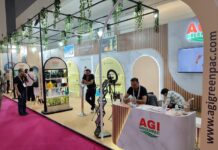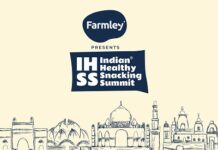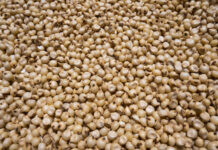
Nestlé’s vision is that none of its packaging ends up in landfills or as litter. On Global Recycling Day, the company highlighted how it is improving its packaging to facilitate recycling and how it is supporting better waste management.
“We are making progress in reducing our overall packaging, making it more recyclable, and using renewable or recycled materials in our packaging,” said Antonia Wanner, Nestlé’s head of ESG strategy and deployment. The design of, and material used in, our packaging are factors we can directly impact. But we also go beyond that and help build up waste management infrastructure, support harmonized regulation, and engage on the human rights of waste workers.”
At the end of 2023, 83.5% of Nestlé’s plastic packaging globally was designed for recycling. For example, in the UK and Ireland, Nestlé has transitioned its quality street sweets and smarties to recyclable paper packaging.
For recyclable packaging materials to actually be recycled, a scale-up of waste management infrastructure is needed. That’s why Nestlé works with local and national governments, industry alliances, civil society and consumers to develop and improve recycling infrastructure in the countries where it operates. It supports a UN treaty on plastic pollution and well-designed, effective mandatory Extended Producer Responsibility and Deposit Return Systems regulation.
Nestlé has partnered on 220 initiatives to develop well-functioning waste collection, sorting and recycling schemes in Europe, Africa, Asia, North America and Latin America. In the UK, for example, Nestlé announced a GBP 7 million investment into a new recycling facility that processes flexible plastics. It is set to open in Durham later this year.
In Belgium, since January 1, 2023, all beverage capsules and pods, whether aluminum or plastic, can be collected in the new blue bag for recycling. This new recycling solution is the result of a partnership between Nespresso, Nestlé, JDE Peet’s and FostPlus.
In Brazil, Nestlé has partnered with the Recicleiros Cidades project. This initiative provides job training, promotes consumer recycling education and implements waste collection infrastructure in 11 Brazilian states. Waste collection partnership projects supported by Nestlé in Brazil today empower more than 8 000 recycling professionals.
Nestlé also uses recycled and renewable materials in its packaging, and at the end of 2023, 41.5% of its total packaging was made from recycled or renewable content. The company is using 50% recycled polyethylene (rPE) in the shrink film used across its European factories and is aiming to continuously increase the amount of food-grade recycled polypropylene (rPP) and rPE in many of its brands’ packaging, including Nesquik, KitKat and Purina.
Nestlé will continue to pursue its work to keep packaging materials in the circular economy, and out of the environment.
IndiFoodBev — authentic, impactful and influential
An English-language food and beverage processing and packaging industry B2B platform in print and web, IndiFoodBev is in its third year of publication. It is said that the Indian food and beverage industries represent approximately US$ 900 billion in revenues which implies more than 20% of the country’s GDP. Eliminating the wastage on the farmside can help to deliver more protein to a higher number of the population apart from generating sizable exports. The savings in soil, seeds, water, fertilizer, energy and ultimately food and nutrition could be the most immense contribution that country is poised to make to the moderation of climate change.
To improve your marketing and grow sales to the food and beverage processing and packaging industry, talk to us. Our research and consulting company IppStar [www.ippstar.org] can assess your potential and addressable markets in light of the competition. We can discuss marketing, communication, and sales strategies for market entry and growth.
Suppliers and service providers with a strategy and budget for targeted marketing can discuss using our hybrid print, web, video, and social media channels to create brand recognition linked to market relevance. Our technical writers are ready to meet you and your customers for content.
The second largest producer of fruit and vegetables in the world is continuously expanding processing capacities and delivery systems with appropriate innovative technologies. We cover product and consumer trends, nutrition, processing, research, equipment and packaging from farm to thali. Get our 2025 media kit and recalibrate your role in this dynamic market. Enhance your visibility and relevance to existing markets and turn potential customers into conversations. Ask for a sample copy of our bi-monthly in print or our weekly IndiFoodBev eZine each Wednesday.
For editorial info@ippgroup.in — for advertisement ads1@ippgroup.in and for subscriptions subscription@ippgroup.in
Naresh Khanna – 10 February 2025
Subscribe Now










